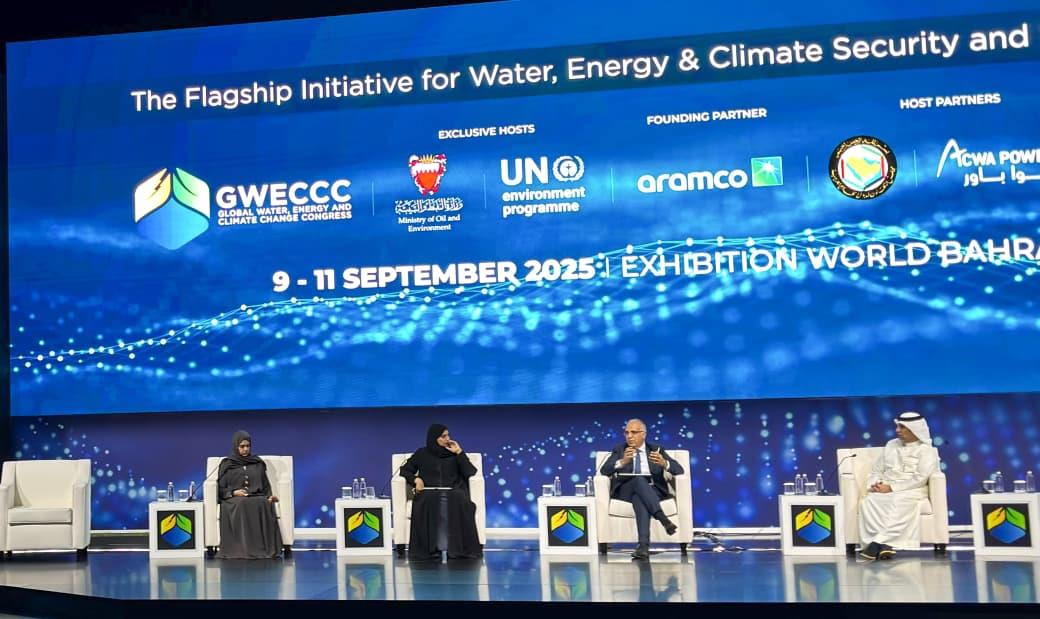Egypt Urges Stronger Arab, Global Cooperation To Address Water Scarcity, Climate Challenges
Speaking at a high-level ministerial session titled“Redefining the Integrated Water-Energy-Climate Nexus for a Sustainable Future” during the Second World Conference on Water, Energy and Climate hosted by Bahrain, Sewilam highlighted Cairo's extensive efforts to enhance water efficiency and expand reuse and desalination programmes. He also praised the Kingdom of Bahrain for its organisation of the event.
The minister explained that Egypt currently reuses around 21 billion cubic metres of agricultural drainage water annually. This figure is expected to increase to 26 billion cubic metres by 2026 with the operation of new conveyance systems linked to major treatment plants, including the New Delta and Bahr El-Baqar facilities.
He noted that large-scale desalination powered by solar energy could play a pivotal role in ensuring food security, provided that research succeeds in reducing costs to make desalination economically viable. Sewilam also called for greater application of the“water footprint” concept for crops, alongside the expansion of advanced techniques such as aquaponics to maximise agricultural productivity per unit of water.
On emissions reduction, the minister pointed to Egypt's efforts to modernise water pumping stations, strengthen groundwater well management through artificial intelligence tools introduced under recent water law amendments, and roll out the“Egyptian Irrigation 2.0” system, which integrates research, satellite monitoring, and smart irrigation technologies.
He added that Egypt has constructed 1,648 protective structures against flash floods and is adopting both traditional and eco-friendly methods to safeguard its coastlines. The National Water Research Center, he said, is also conducting a study to design flood protection systems for the Libyan city of Derna.
Sewilam further emphasised Egypt's commitment to regional cooperation, citing development initiatives across Nile Basin countries such as the installation of solar-powered groundwater wells for drinking water, flood forecasting centres, aquatic weed control projects, and specialised training programmes. He also announced the launch of a new $100m financing mechanism to support development projects and technical studies in southern Nile Basin states.

Legal Disclaimer:
MENAFN provides the
information “as is” without warranty of any kind. We do not accept
any responsibility or liability for the accuracy, content, images,
videos, licenses, completeness, legality, or reliability of the information
contained in this article. If you have any complaints or copyright
issues related to this article, kindly contact the provider above.
Market Research

- Edgen And Sahara AI Announce Strategic Collaboration To Pioneer Decentralized Validation In Market Intelligence
- Virtual Pay Group Secures Visa Principal Acquirer License
- Japan Buy Now Pay Later Market Size To Surpass USD 145.5 Billion By 2033 CAGR Of 22.23%
- GCL Subsidiary, 2Game Digital, Partners With Kucoin Pay To Accept Secure Crypto Payments In Real Time
- United States Acetic Acid Market Size, Growth & Forecast 2033
- Bitget Launches PTBUSDT For Futures Trading And Bot Integration




















Comments
No comment